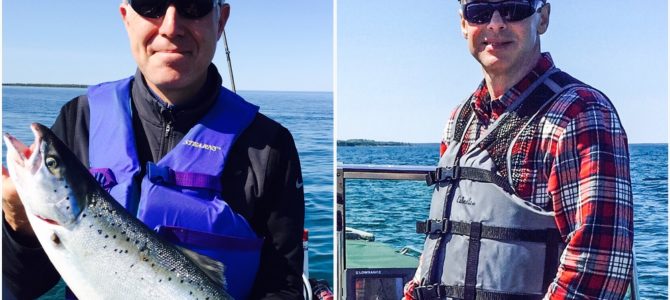
When the White House interviewed Judge Raymond Kethledge as a potential successor to Justice Antonin Scalia, Vice President Mike Pence asked him “If not you, who?” Rather than demur or give faint praise of a lesser candidate to improve his own chances, Kethledge responded: “Mr. Vice President, that’s the easiest question you’ve asked me all day. The answer is Neil Gorsuch.” Kethledge then explained why—uninterrupted—for four minutes.
Judge Gorsuch, of course, became Justice Gorsuch. In the year since his confirmation, Gorsuch has faced enormous pressure to compromise his conservative principles: pressure from the media, pressure from politicians, and pressure from some colleagues. He has stood strong.
Now the search is on to find a new justice in the mold of Gorsuch, and Scalia before him. Among the many outstanding candidates, one stands out: the one who so highly recommended Gorsuch the last time around. With Kethledge, the president has the chance to nominate Gorsuch’s ideological twin, his intellectual peer, his real-life fishing buddy, and his close personal friend. In short, President Trump has the chance to nominate “Gorsuch 2.0,” as prominent conservatives have referred to Kethledge in recent days.

Two Peas In a Pod
The “Gorsuch 2.0” moniker is a fitting one. For starters, both hail from well beyond the DC beltway—Gorsuch from Colorado, Kethledge from Michigan (a state key to the president’s victory). Kethledge’s ties to the Michigan heartland go back decades: he spent all of three years in DC, first working for the Republican senator from Michigan, Spencer Abraham, then clerking on the Supreme Court for Justice Anthony Kennedy, before returning home again to Michigan.
Once there, he practiced law as an associate and partner, worked at one of the country’s great car manufacturers, Ford Motors, then founded a law firm with a few partners. Now he writes judicial opinions when he’s not felling trees to feed his wood-burning stove. Throughout the country, people feel less and less understood by Washington. Gorsuch’s nomination showed them that real people still have a seat on the Supreme Court. Kethledge’s would do the same.
In judicial philosophy, the two men are on the same page. Kethledge—like Gorsuch—is a committed originalist who interprets the Constitution according to what its words meant when We the People ratified them. As a result of their shared philosophies, they are both staunch defenders of religious liberty, the Second Amendment, and the separation of powers in light of concerns related to the administrative state.
Like Gorsuch, Kethledge is a committed textualist, consistently using linguistic tools such as dictionaries, syntax, and common usage to determine the plain meaning of statutes. Also like Gorsuch, Kethledge rejects the use of legislative history to countermand the plain meaning of a statute.
The same is true of their character. Gorsuch was roundly commended for his civility and grace during the confirmation process, and America could expect the same thing from Kethledge. The president praised Gorsuch for his dedication to his wife and daughters, and Kethledge has always placed his wife and children ahead of everything else. Gorsuch is known for his rock-solid commitment to his core principles, even when buffeted by outside forces. Kethledge wrote a whole book on the topic, explaining that he uses solitude to center himself and do what’s right despite the noise: “First principles are a deep vein of moral courage.”
A Two-Man League of Their Own
Gorsuch and Kethledge are also widely regarded as two of the best writers in the federal judiciary. Really, they’re in a two-man league of their own. Kethledge’s writing is frank and his metaphors well deployed. His opinions read more like Hemingway than Proust, and they are self-evidently the product of a life of reading.
No wonder the Wall Street Journal dubbed a Kethledge opinion the “Opinion of the Year,” just one of the many accolades his writing has received. For example, a dissenting judge once claimed that Kethledge’s majority opinion mistook where “the beaches of Normandy l[ay]” in the case. Kethledge flipped that right around, retorting that “[w]here the dissent actually finds itself . . . is at Pas de Calais,” referring to the famous head-fake on D-Day that the Allies pulled off against the Nazis.
In another case, the Obama Department of Labor attempted to fine a church essentially because it found the pastor’s sermons too “coercive.” Kethledge rejected the claim and rebuked the agency for taking an extreme position: “What is perhaps most troubling about the Department’s position in this case . . . is the conceit of unlimited agency power that lies behind it. The power of a federal agency is no more than worldly. The Department should tend to what is Caesar’s, and leave the rest alone.”
Notably, Kethledge writes his published opinions himself from scratch, which is rare among judges. This dedication to his craft isn’t window dressing. For a Supreme Court justice, strong writing is not just a bonus. Writing is the job. Clear, forceful, and persuasive writing is what separates a mediocre justice from a great one.
Strong writing moves the Supreme Court, and moves the public. It is why Scalia’s opinions have been so influential and have withstood the test of time, and it is why Gorsuch’s will do the same. We can feel confident that Kethledge’s exemplary writing over the course of a decade on the bench would live up to this standard as well.
President Trump was elected largely on the promise that he would nominate a strong Supreme Court justice to honor Scalia. He did. He now has a chance to nominate another one. There are certainly some differences between Gorsuch and Kethledge—Kethledge prefers to fish with bait and tackle, while Gorsuch prefers the fly rod, for example—and each is his own man. But the similarities are hard to miss. Kethledge on the Supreme Court would be an excellent addition to the president’s legacy.









